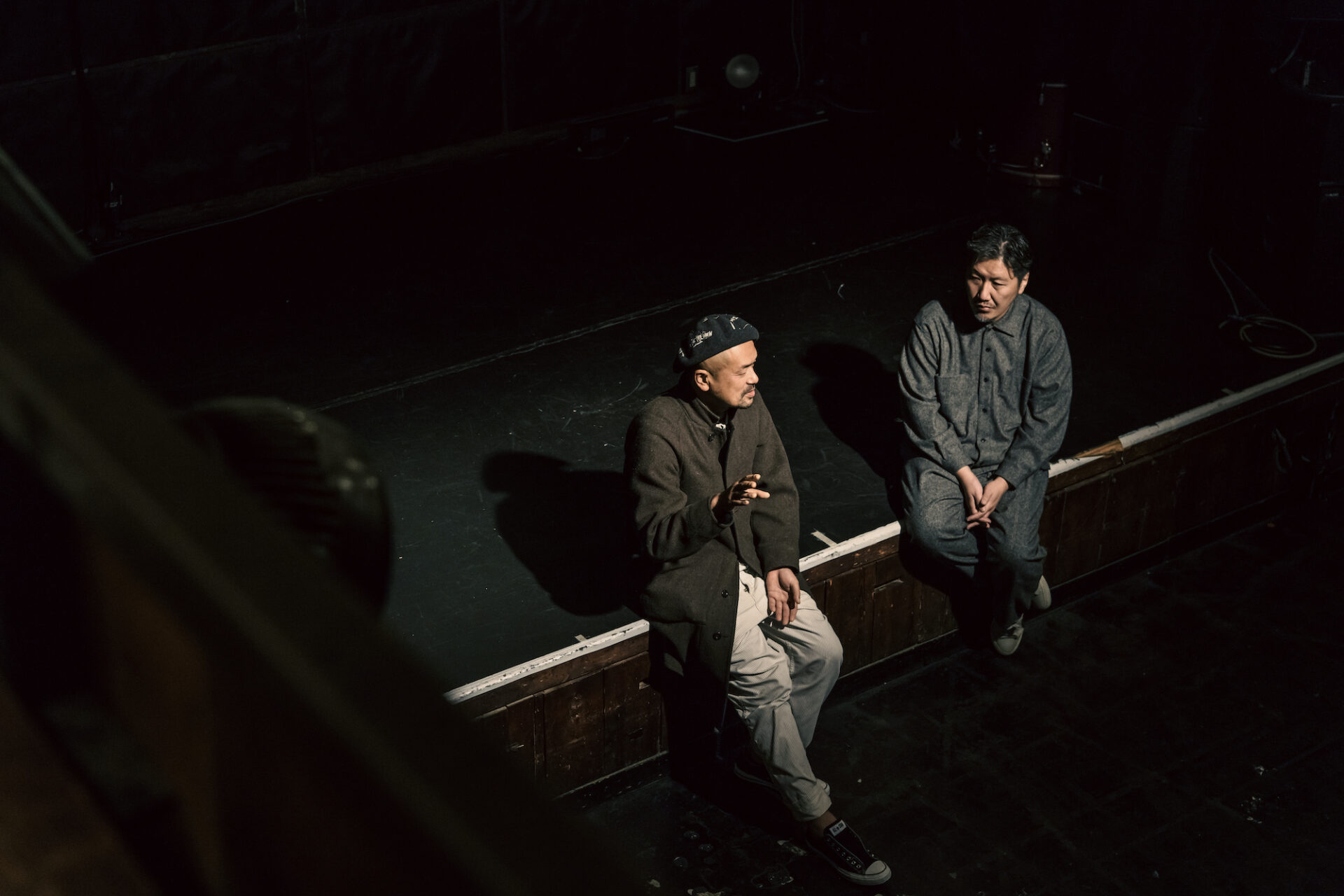
2024-02-17
Vol.3
Musician and Poet
Madoki Yamasaki(part 1)
-
Views of Life and Death in Current Society
-
Sound as Word and Communication Method
-
Quantum Thinking to Uncover the Essence
-
Balance of Creativity and Sociality
-
Act as Megaphone to Spread Culture in Society
Poems, music, graffiti, and tagging…The man writes down the surge of his emotions with energetic words. What emerges from the waves of words is a sharp, powerful message for a society in deadlock, but at the same time, it is a hint to break through the current situation. “Every expressive activity I make is for creating a place for words,” he says. What does this extraordinary creator think about the power and universal value of words?
Inviting Mr. Madoki Yamasaki, who is the leader of one of Japan’s leading poetry jazz bands, F.I.B. JOURNAL, and is also active as a poet and an artist, we deeply discussed a wide range of topics, including each other’s interests and the plan of collaboration.
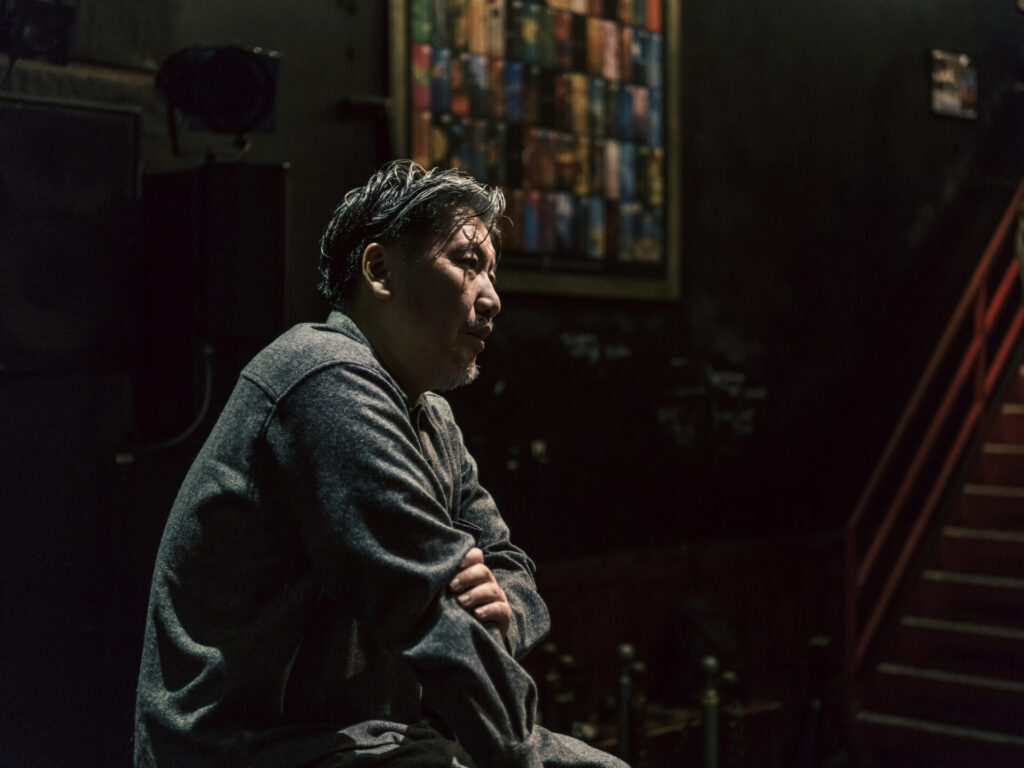
“I am in the beauty business to create a society where people age beautifully, experience wonderful encounters, and die happily (Shigeta)”
——First of all, I would like to ask how the two of you first met.
Masakazu Shigeta: There is a cafe in Meguro called “Chum Apartment” run by the TV personality Chiharu. One year, Mr. Yamasaki performed at the Halloween party when I had a booth in the corner of the cafe. That was the first time we met.
Madoki Yamasaki: Yes, that’s right.
——Did you know his music before that?
Shigeta: No, I didn’t know his music at all. But his performance made a significant impact on me. It was just amazing. I had never experienced any music like that. That was about ten years ago, and I have been a kind of follower since then. (laughs)
——Mr. Shigeta, as you used to be a recording engineer, you must have had many opportunities to experience new music. So, what was it about Mr. Yamasaki’s music that made it different from others?
Shigeta: I started my music career by playing saxophone and jazz, and later, I experienced DJ and got interested in Hip-hop. His sound attracts me because it has all the elements of my music career and is punkish at the same time.
I started this media project, “Idealism,” because I believe speaking opinions loudly to the world around us is crucial in today’s society.
What is important here is the idea of “punk” as an expression of rebellious spirit against the stagnant society, not in the context of violence. That is another reason why I feel close to his sound.
——You said you visited live events of the 20th-anniversary tour of F.I.B. JOURNAL several times last year.
Shigeta: Yes, I went to the live concert at a Noh theater in August and the performance in Shimokitazawa in November. The band formation in Shimokitazawa truly reflected the human relationship between Mr. Yamasaki and the band members, who knew everything about his sound. I felt their emotions from every part of the performance to make it the best sound it could be. I sent him a message the day after the performance, but I was so impressed by the performance that somehow my vocabulary got poor, and all I could write to him was just something like, “That was really great!” (laughs)
I previously saw a performance with the horn section at Thumsup in Yokohama, but the orchestra composition this time evolved even further. In addition to the overall harmony, from the point of view of a sound engineer, I would say the sound-making was wonderful.
Yamasaki: I am glad to hear that.
Shigeta: We exchanged various messages via messenger this year. He sent me several poems and words in response to my fervent requests to collaborate with him. Every word he gave me was convincing and meaningful to me, and they made me reinterpret and sort out what I had been thinking. His words are truly encouraging, and I wanted to share his words with many people, which is one of the reasons why I chose him as the guest today.
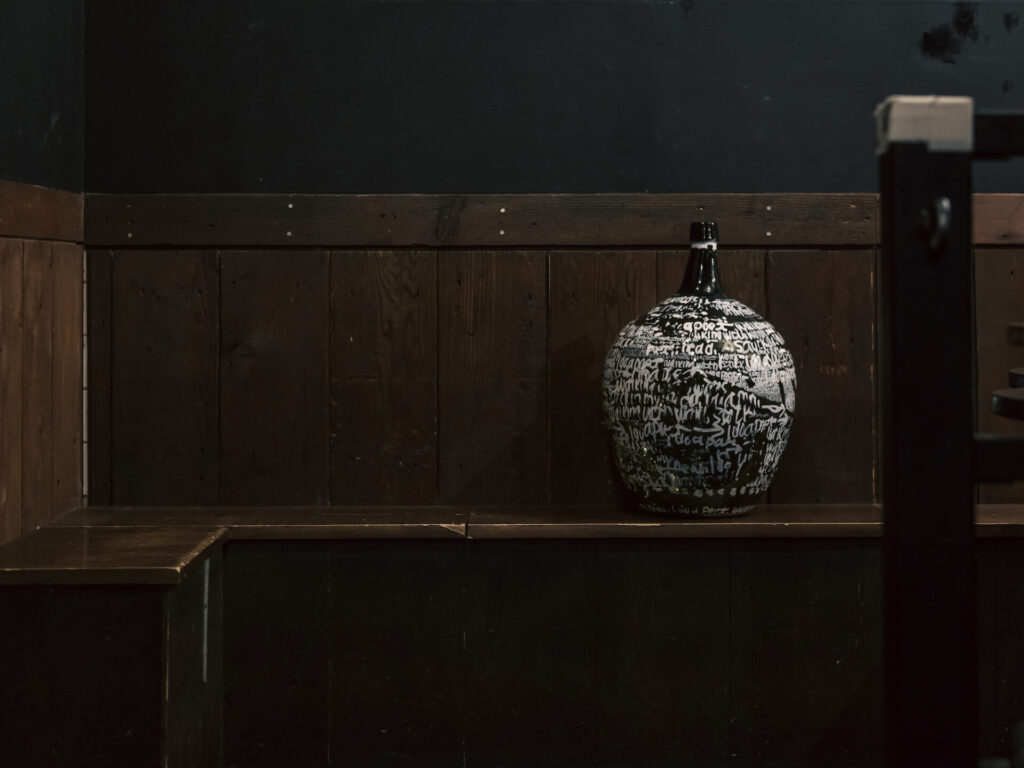
——So, do you have other reasons as well?
Shigeta: Yes. The COVID pandemic made me rethink my view of life and death. While many countries introduced restrictions to human mobility as an infection control measure, Sweden did not require citizens to wear face masks nor adopt a mandatory lockdown. They might think it is a matter of life expectancy even if they die from the virus since Sweden is a country where people value quality-of-life philosophy and reject life-prolonging treatment.
In addition, my father had a brain hemorrhage last year. He was conscious when I arrived at my parents’ house, but his condition worsened in the hospital.
The doctors and nurses asked me, “Do you want a ventilator for him?” or “What about cardiac massage?” in rapid succession. Under such circumstances, it was hard to say, “Please don’t do it.” But I wondered if prolonging his life would make my father happy. Although he survived, he has been bedridden since then. I wondered if my decision was good for him. The experience led me to think deeply about life and death.
Working in the beauty business, I always feel something wrong whenever I see people regard the goal of beauty as immortality. Because what I want to do in the beauty business is to create a society where people age beautifully, experience wonderful encounters, and die happily. Although I have been thinking about life and death and what happiness means, the conclusion is yet to be visible within myself. So, I thought I could sort out some of these issues by talking with Mr. Yamasaki today.
——Mr. Yamasaki, do you consider life and death, happiness, and love as the theme when you create poems and words?
Yamasaki: Of course I do. In the first place, the reason why I started writing poems was the death of a friend in elementary school.
The area of my hometown is known as the “Deep South” in Kawasaki city, where there were many stables and factories around. The rivers were muddy everywhere with industrial wastewater. It wasn’t easy to get out once you put your foot in the water. We used to play around by placing our foot in the water and trying to pull it out. But one day, one of our friends imitated the play and lost the life. Although we are not the direct cause of the accident, I was extremely shocked that the play we created had changed someone’s destiny.
I was overwhelmed by different emotions and wondered how to make such emotions rest in peace. After much agonizing, I started writing poems. When I could not think of any words, I just made a sound frantically. Seeing his son like that, one day, my father brought a reed organ that somebody threw away near my house. That is when I started playing music.
Have you ever asked your father why he did that?
Yamasaki: No. Perhaps because he felt the atmosphere that I was trying to create something. And my father always praised me whenever I created something.
I started music not because I was inspired or impacted by somebody’s music but because I had an urge to create something. In that sense, it is the same as the origin of hip-hop. We make melodies and rhythms, but when we can’t express our thoughts in sound well, we use words to convey them.
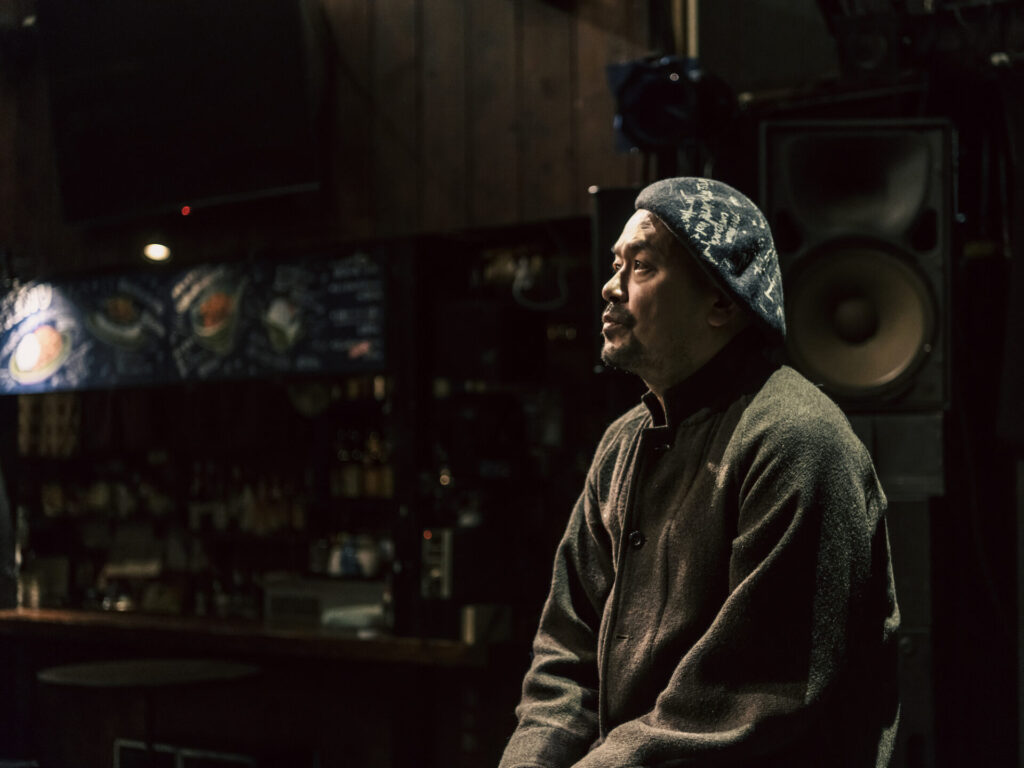
“I was released from the curse of music when I realized that music is to give a certain filter to things and situations, taking a bird’s-eye view. (Yamasaki)”
Yamasaki: I don’t know why, but I always thought I would die young. It may have something to do with the accident I just told. So, I once had a time when I kept thinking about how to live longer and eventually came up with the idea that I should stop sleeping. I thought that if I didn’t sleep, I would have lived longer than other people. Then, it became ridiculous for me to go back home and sleep, and I started sort of “wandering” when I became a high school student.
And that is when an art teacher encouraged me to consider going to university. One day, I tore up my exam paper to make a collage, which made all the teachers angry. Only the art teacher protected me by saying, “He has great individuality.” Later, the teacher told me about Wako University and explained that it is “half like an art university” and “They might accept you.”
In the university, I met the members of LITTLE CREATURES, who encouraged me to make my debut. But there was a huge gap in ability between them and me, as they studied the basics of music and became professionals in their teens. So, I really wondered what to do. After much thought, I reached the idea of “rhythm.” Interpreting music as rhythm, I thought I could have sessions with various people.
Following the rule is a way, but music has the adaptability that makes sessions possible by using different filters. For example, imagine a situation where one person is playing guitar with background music, and another is speaking beside the guitarist. When you see the scene from a bird’s-eye view, it works well as ambient music.
When I realized music is to give a filter to things and situations by taking a bird’s-eye view, I was released from the curse of music, in which I was trying to put music in the framework of melodies and codes.
——While your initial entry point to music is unique, I think I understand how your taste in music was formed.
Shigeta: I recently found a clip on YouTube in which jazz musician Mr. Sadao Watanabe and singer Mr. Toshinobu Kubota took a journey. Starting from modern jazz, they went to the southern U.S., where the blues was born, then to Brazil, and finally to Africa. In Africa, people were beating drums and other instruments in rhythm, which looked more like communication through words than music, and I felt it had something in common with the poetry reading that Mr. Yamasaki does.
After watching the clip, I thought music has its roots in the idea that sound is language, and melodies and codes are more like communication methods. When I was playing music, I always thought about how to play well and eventually got tired and quit. If I could see things from the same viewpoint as Mr. Yamasaki, I would be a little different from what I am today.

“The closer we get to human roots, the more the structure and mechanism of things will become “quantum” (Shigeta)”
Shigeta: I noticed something about you during a dinner in Shinanomachi the other day. That is, the basis of your music is something similar to quantum physics. This is my personal opinion, but after seeking the essence of music, I believe it will ultimately be divided into philosophy and physics. I initially thought your music was more on the philosophy side because the music of Tom Waits and Bob Dylan, which you sometimes cover, is also close to philosophy for me. Philosophical thought originates in Europe, and I think it influenced the history of slavery. Then, what about the roots of African music? As African people were on the side of exploitation through slavery, it is clear that it is not philosophy. My view is that it might be physics and quantum thinking. To communicate with someone, you play the sound, and it is conveyed quickly. Isn’t the process very quantum?
A Japanese-Brazilian employee in my family business’s plating factor once said, “The act of praying to God has a velocity of emotions,” and I thought it was also very quantum. In my opinion, the closer we get to human roots, the more the structure and mechanism of things will become quantum. So, I would like to describe Mr. Yamasaki’s music as quantum.
Yamasaki: I have rarely had my music described as quantum mechanical, but I have been curious about the ideas of quantum. For me, the role of songs and words is to give names to unspoken feelings and make them rest in peace. Perhaps these ideas are closer to quantum than philosophy.
In other words, we breathe life into small phenomena and invisible powers, and I believe my mission can be found in such a primitive place.
I think my words are more similar to the wisdom of life rather than enlightenment. So perhaps my act is more similar to “invention.”
I always think something like this, which is probably why I always find myself at a dead-end after all (laughs).
——What motivates you to keep doing music?
Yamasaki: Simply because that is the only thing I can do. Artistic activities aside, even though I don’t get paid enough, it is only music that gives me the breathtaking moments where life glisteningly shines.
Shigeta: Mr. Yamasaki is really like that.
Yamasaki: Perhaps it is partly because I want to feel a sense of being alive.
——Does it have something to do with the story you mentioned earlier that you thought you would die young?
Yamasaki: That might be true. Everyone eventually faces death. When I was young, there was a period when I thought somewhere in my heart that my life was eternal. Actually, the period was a detour in my life. I had lost my sensitivity to death even though the reason I started music was the death of my friend. I could sleep long at the time because I thought I was remote from death.
On the contrary, now that I got older, I wake up many times during the night. I consider it as my defiance and rebellion against death. I assume “I don’t want to sleep!” is what my body wants to say.
Thinking like this makes me want to live for the moment, and I am moved by changes, such as when the weed I see daily grows rapidly. Time passes, but at the same time, it accumulates and never disappears. It is the same for human life. When passed away, it is something like the beginning of a new journey. To end is to begin, and to begin is to end. I believe we spend more time dead than alive. I always tell myself that the present time I am living is not all there is.
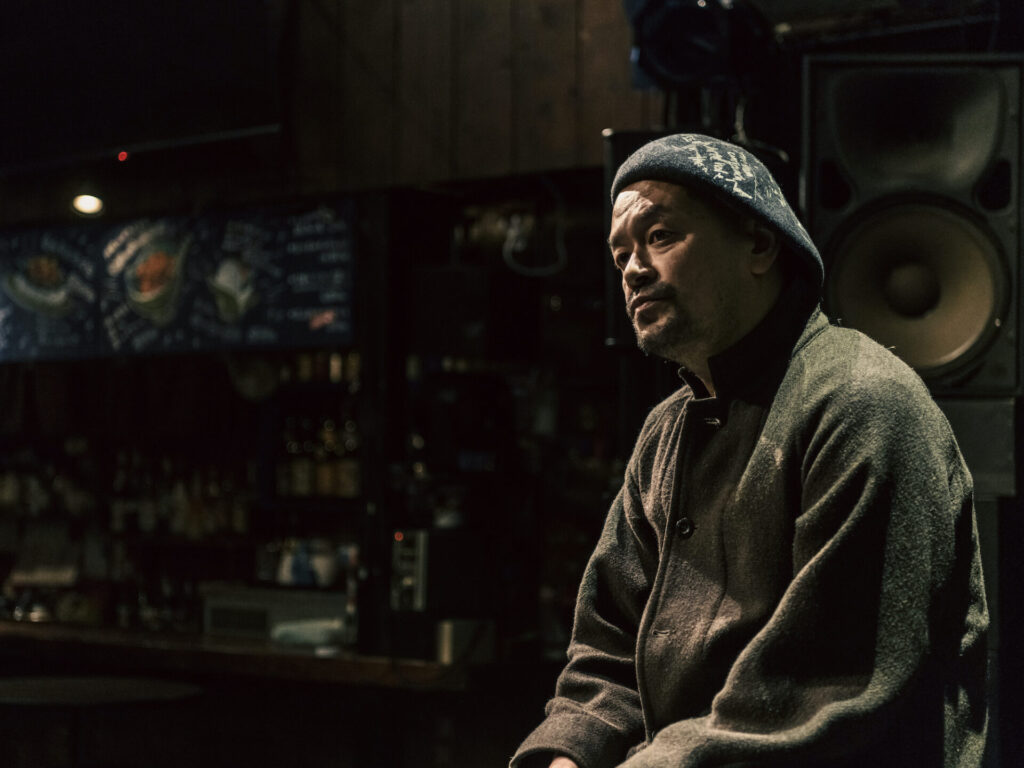
(to be continued in the second half)
Profile
-
Madoki Yamasaki
Born in Kawasaki City, Kanagawa Prefecture, in 1970, Yamasaki started his musical career as a self-taught musician in his teens. He joined with musicians like Tsutomu Kurihara, a member of LITTLE CREATURES, to form Noise On Trash and made his debut in 1996. In 2003, he formed F.I.B JOURNAL after collaborating with the fashion magazine commons&sense” and has released many works described as “jazz-punk.” Besides musical activities, he is also active as a poet. He has published two poetry books and is currently working on the third one. He is also the leader of “BOOKWORM,” a public reading session held irregularly to “share the favorite words.” He also energetically presents works using the methods of graffiti and tagging. He recently collaborated with several fashion brands. In 2022 and 2023, he held a solo exhibition of his tagging works, which he made in his atelier, at galerie-a in Minami-Aoyama, Tokyo. He is planning to have another solo exhibition in 2024.
-
Masakazu Shigeta
After working as an engineer in the music industry, Shigeta began his career as a cosmetics developer in 2001. Since 2004, he has produced a variety of cosmetics brands in the healthcare business of Nitto Denka Kogyo Co., Ltd., a metal surface treatment company founded by his great-grandfather.
In 2017, he founded Osaji, a skincare lifestyle brand, and became the brand director. He also produced Kako, a specialized shop for home fragrances perfume in Kuramae, Tokyo, in 2021, and a combined shop of Osaji, kako, and a restaurant enso in Kamakura, Kanagawa, in 2022.
In 2023, using Nitto Denka Kogyo’s skills, he produced a pottery brand, HEGE, and he also opened a restaurant serving rice porridge, HENGEN, in Kita-Ueno, Tokyo.
Publications
Taberu Biyou (Eating for Beauty) (SHUFU TO SEIKATSU SHA, 2024)
42-Sai ni Nattara Yameru Biyou, Hajimeru Biyou (Beauty cares to quit and start when you turn 42) (Takarajimasha, 2022)
Information
F.I.B JOURNAL
F.I.B JOURNAL is one of Japan’s leading poetry jazz bands, celebrating its 20th anniversary in 2023. In 2005, Katsuhiro Mafune, a support bassist of EGO-WRAPPIN’, and a drummer Naoya Numa joined, making F.I.B Journal a trio band. So far, they have released seven albums: five by the trio, one by the orchestra formation, and one with Kaori Takeda, the vocalist of a music unit TICA. Their most recent work, “This is GHOST,” which is the sampling and sound collage of phrases in previous works, was released on a distribution platform in the fall of 2023. Yamasaki himself created the artwork by tagging.
-
Photographs:Eisuke Komatsubara
-
Text:Masahiro Kamijo
-
Location:MOONLOMANTIC